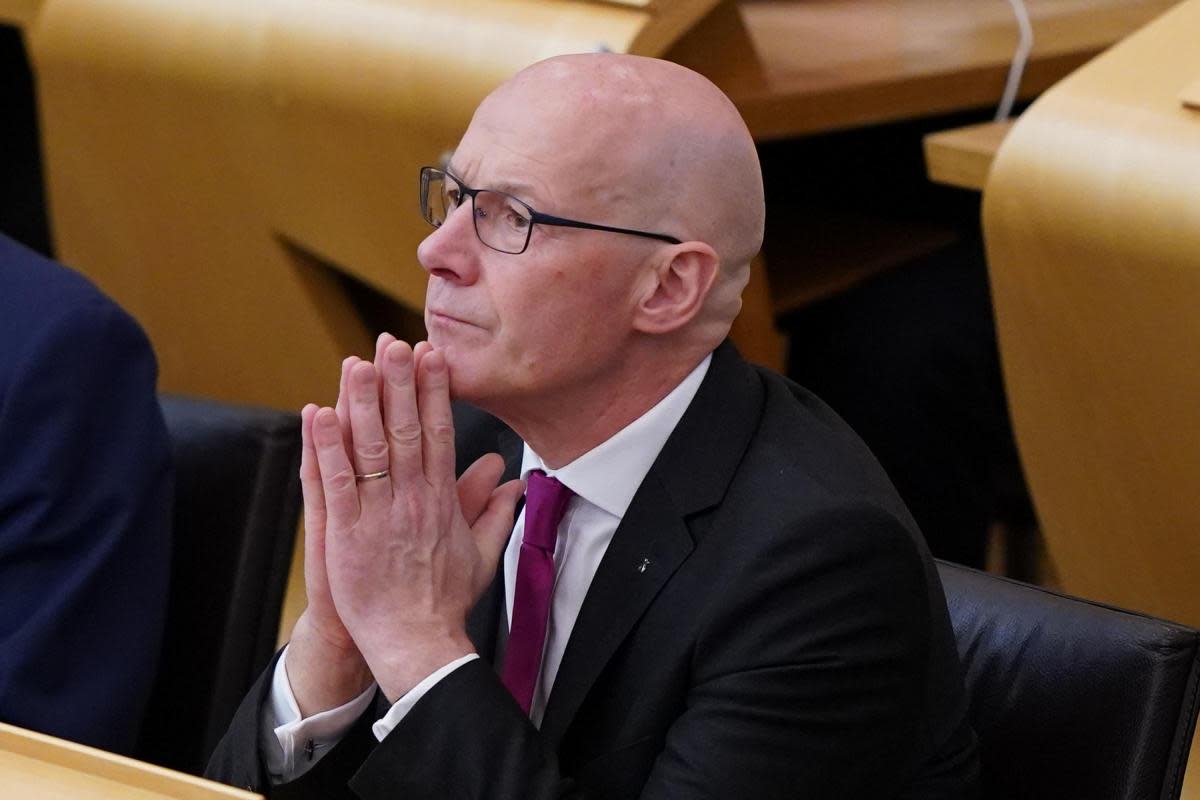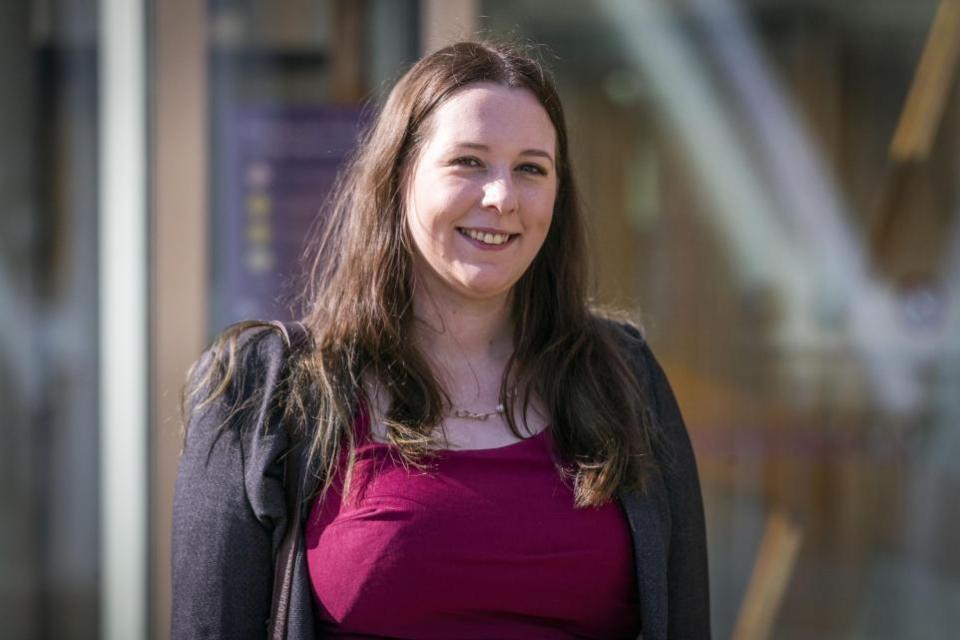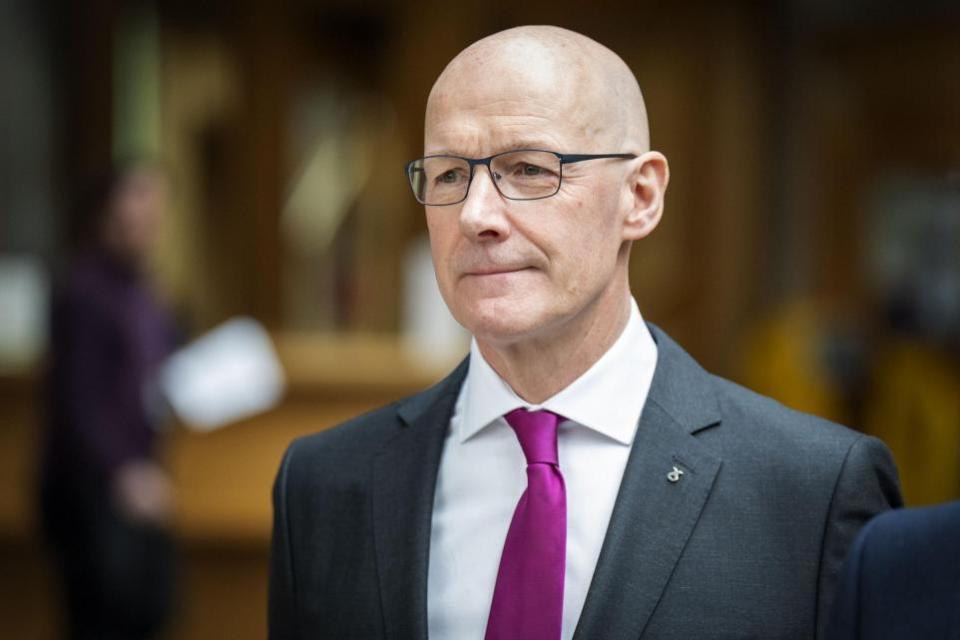In Common: How John Swinney can eradicate child poverty as First Minister


Good evening! This week's edition of the In Common newsletter comes from Craig Dalzell, head of policy and research at Common Weal. To receive the newsletter direct to your inbox every week click here.
John Swinney is now Scotland’s seventh First Minister. He is also the sixth first minister to have been, at the time of his swearing in, one of the tranche of "99’ers" – the first generation of MSPs who have held unbroken service in Holyrood since the start of devolution and the recommencement of the Scottish Parliament.
This speaks to the relative youth of that Parliament as does the fact that, at present, we still do not have an elected MSP who is younger than the devolution era (though we came close in 2021 with the election of then 23-year-old Emma Roddick (below), who was born just shortly before the devolution referendum in 1997).

READ MORE: Who is Kate Forbes? Scotland's new Deputy First Minister
We’re still living in fast-moving times and the period between me writing this column on Wednesday morning and you reading it on Thursday evening is a gaping chasm that none can see across clearly, but I did want to take a moment to pick up a point made by Swinney during his speech when he accepted the mantle of leader of the SNP.
It’s a point that I’m slightly surprised that no-one else picked up on, because it was his sole tangible policy pledge that couldn’t be discounted as the mere background level of filler (no-one expects a politician to promise to build fewer houses, so a comment about building “more houses” without a tangible target or policy strategy isn’t much more solid).
John Swinney pledged to “eliminate child poverty in Scotland”. So I’d like to take a moment to ask him the hardest question anyone can ask any politician who has made a pledge of any kind.
"How?"
I’m not saying I’m against the idea. Scotland’s child poverty levels are appallingly high – in 2022, some 26% of all children in Scotland were poor. Only five countries in the EU have higher levels of child poverty than Scotland (the closest two above us are France and Greece).
Prior to Monday, the Scottish Government target for reducing child poverty was to get it below 18% by the end of the financial year last month and to below 10% by 2030. Swinney has pledged not to meet and exceed that target (echos of the dropped climate change targets that precipitated his premiership must be loud), nor to meet or exceed EU norms (to which a Government seeking to create a pro-EU independent Scotland surely aspires?), but to reduce child poverty to 0%.
To get child poverty to 0% is going to take a radical rethink of policy across multiple areas of Scottish policy. He’s going to have to properly tackle housing – an expensive yet cold, damp house is almost certainly a poor house as it eats far more income than necessary to maintain. He’ll have to tackle income (the UK economy is built on wage suppression and squeezing more and more out of workers while giving them back less than ever). He’ll have to tackle energy prices – possibly by bringing energy into Scottish public ownership – to avoid the price gouging that has been driving inflation.
READ MORE: AI deepfake video of John Swinney on Sky News goes viral on Twitter
He needs to massively improve pollution and climate mitigations as the cost of failure there lands disproportionately on the poor. He’ll have to reverse the damage caused by decades of profit extraction – as our recent policy paper showed, Scotland has lost over a quarter of a trillion pounds to foreign companies removing profits from Scotland since Swinney became an MSP.
And even all that may only be enough to massively reduce child poverty in Scotland. It would transform the lives of thousands, but it wouldn’t meet his pledge to “eliminate” the scourge.
There is one policy that would do that. A Universal Basic Income would, by definition, ensure that no-one in Scotland would be poor. A recent study from the EU found that a UBI sufficient to eliminate all poverty (including child poverty) would cost about 1% of GDP (or about £2 billion a year for a country the size of Scotland) in additional spending after adjustments like taxing the UBI back off of high earners.
Finding an extra £2bn from where Scotland currently is would be quite the challenge but it is doable. Common Weal policies like Council Tax reform and a Land Tax could get us about half of the way there. Proposals from the STUC could reach more of the rest. And making the changes suggested above would lead to a generally wealthier and more equal country which would almost certainly find the rest.

John Swinney (above) has set himself quite the challenge with what was very likely intended to be a throwaway remark during a celebratory speech but it is a challenge nonetheless. One where success will lead to a country transformed in almost every aspect. One where failure has real consequences for children who would suffer the broken promise.
With stakes that high, we must take these words for the promise they are. John Swinney – I hope in the coming days you will show us how you intend to meet your pledge to eliminate child poverty in Scotland. We are going to hold you to it.

 Yahoo News
Yahoo News 
